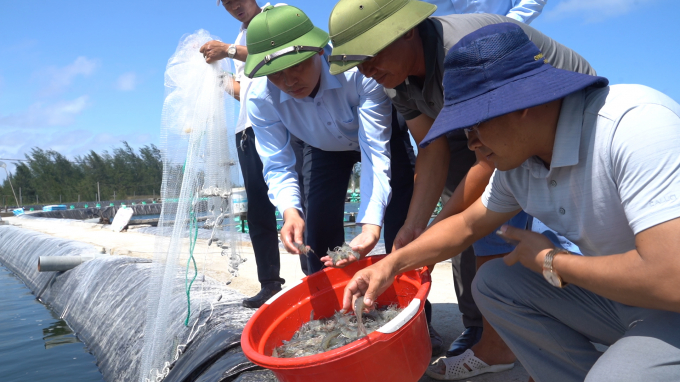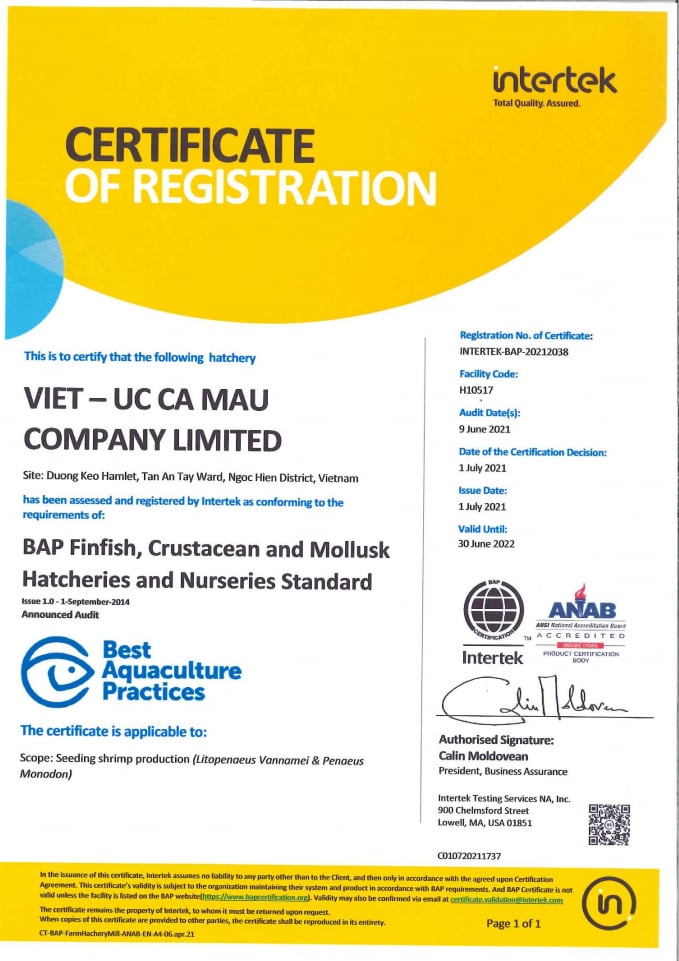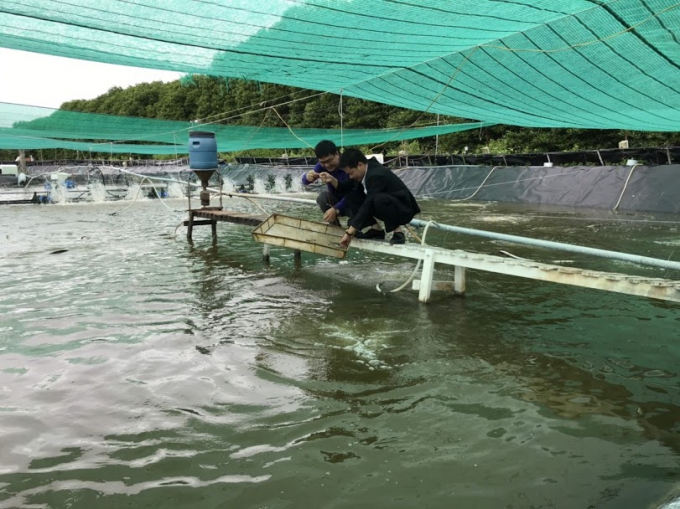November 20, 2025 | 22:07 GMT +7
November 20, 2025 | 22:07 GMT +7
Hotline: 0913.378.918
November 20, 2025 | 22:07 GMT +7
Hotline: 0913.378.918

The quality of the seed determines over 50% of shrimp farming’s success.
For shrimp farmers, seed determines more than 50% of a crop’s success. Therefore, the selection of quality shrimp seeds from reputable shrimp seed companies always plays an important, if not say, a decisive role.
To shrimp seed production enterprises, product quality is not only displayed in advertising information, self-declaration in the media, but must be authenticated by reputable organizations and widely recognized international certifications.
This certification requires the company not only to guarantee to produce quality seeds with clear origin through production and operation processes that secure rigorous criteria and verification, but the operation of production activities must also comply with the environment and social responsibility criteria, which are highly appreciated standards in international consumption markets, and later help improve product value and improve profits for both businesses and shrimp farmers.

The BAP (Best Aquaculture Practices) international certificate of the Global Aquaculture Alliance (GAA) is very prestigious, very few businesses have achieved this.
It is known that the BAP (Best Aquaculture Practices) international certificate of the Global Aquaculture Alliance (GAA) is an international certification based on scientifically achieved standards for the whole aquaculture supply chain, meeting food safety and traceability standards, being environmentally and socially responsible.
BAP certification is one of the key factors for customers to have full confidence in the quality of products with a clear history, serves as an absolute affirmation of international standard operating procedures and a guideline to lead all activities towards sustainable development.
Products of companies receiving BAP certification are allowed to use the BAP logo to distinguish and identify the brand uniformly around the world, avoiding abuse or confusion, affecting consumers’ interests.
In Vietnam, Viet Uc has always been a pioneer, oriented for a sustainable high-tech shrimp industry, and for many years, the cooperation has continuously maintained the leading position in the supply of quality shrimp seed sources. Therefore, they have won many major international certifications such as BAP, ASC, Disease-free production facilities of the World Organization for Animal Health (OIE)...
And recently, the cooperation’s Viet Uc - Ca Mau Co., Ltd., specializing in the production of high-quality whiteleg shrimp and black tiger prawn seeds, was honored to receive the BAP international certificate.

Checking the growth and development of farmed shrimp.
With efforts to invest, improve technology, expand the scale and produce shrimp seed, Viet Uc Cooperation aims to conquer many other important international certifications, thereby joining hands with shrimp farmers to raise the brand and value of Vietnamese shrimp in the international market.
The Vietnamese shrimp seed market does not have too many options for quality and traceable seed sources.
Thanks to the large-scale investment, continuous improvement in the shrimp seed’s quality through each generation, certified by international organizations, shrimp farmers are now fully confident in accompanying Viet Uc’s shrimp seeds - The high-tech shrimp seed VUS LEADER 21 (with outstanding traits such as 10% higher growth rate than previous generations, stronger resistance, better adaptability, more uniform head…).

(VAN) The information was shared at the seminar 'Urban Agriculture - Solutions for Developing Green Spaces,' organized by the Kinh te & Do thi Newspaper and the Biotechnology Center of Ho Chi Minh City.
/2025/11/19/4141-2-132831_216.jpg)
(VAN) One of Japfa's outstanding solutions is implementing digital transformation and artificial intelligence (AI) to optimize operations, enhance productivity, and advance sustainable development.
/2025/11/19/4847-1-093540_448.jpg)
(VAN) The Gia Lai Provincial People’s Committee had a working session with the delegation of the U.S. Department of Agriculture, the State of Idaho, and representatives of the State's leading enterprises.

(VAN) Ca Mau has a sufficient foundation to become a strong regional aquaculture center, where production integrates the economy, the environment, and the lives of the people.

(VAN) SEIKI Group envisions itself as a pioneer in the ‘dual transformation’ of digital technology and green industry, standing alongside the Government and Vietnamese businesses in their pursuit of sustainable development.

(VAN) The VNGEONET network affirms Viet Nam's progress in mastering digital space, providing a precise positioning data platform to serve socioeconomic development.
/2025/11/14/3247-1-184556_35.jpg)
(VAN) Thai Nguyen is methodically implementing digital transformation in the livestock sector, laying the foundation for a modern, transparent, and sustainable agriculture.